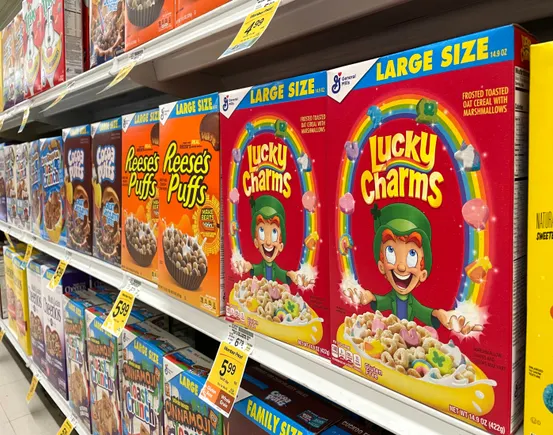General Mills, a leading food company, has announced plans to remove artificial colors from its U.S. retail portfolio by the end of 2027. Additionally, the company has committed to eliminating synthetic dyes from its U.S. cereals and foods served in K-12 schools by the summer of 2026. This move will impact a small portion of its school portfolio and 15% of its U.S. retail portfolio.
This decision by General Mills follows a trend in the food industry, as Kraft Heinz also recently pledged to remove controversial ingredients from its products. Both companies have set a deadline of roughly 30 months to complete this transition, aligning with Health and Human Services Secretary Robert F. Kennedy Jr.’s voluntary deadline for the food industry to remove six synthetic dyes.
While General Mills had previously faced challenges when transitioning to natural colors, the company remains optimistic about meeting its new commitment. The shift from artificial to natural coloring sources presents various challenges, including supply availability, potential consumer backlash, and effects on product shelf life, price, and packaging.
General Mills’ Chairman and CEO, Jeff Harmening, expressed the company’s commitment to meeting evolving consumer needs through this reformulation. The sudden surge in commitments from food giants to remove artificial colors may be a response to the FDA’s requests, as government officials have hinted at increasing pressure on food makers to incentivize reformulation.
Despite the voluntary nature of the FDA’s request for phasing out artificial dyes before 2027, companies like General Mills and Kraft Heinz are taking proactive steps to align with consumer preferences and regulatory expectations. By setting their own targets, these companies aim to demonstrate their commitment to meeting industry standards and evolving consumer demands.


